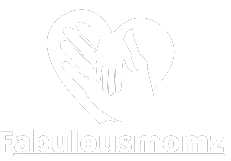How Many Words Should an 18-Month-Old Say?

Language development is an exciting milestone in a child’s life. This article will explore How Many Words Should an 18-Month-Old Say and discuss tips to encourage language development. We will also highlight potential red flags for language delay and seek professional evaluation.
1. Introduction
Language allows children to express their needs, thoughts, and emotions. By 18 months, toddlers usually start developing language skills, although the range of vocabulary and word usage can vary widely. Understanding what to expect and how to support your child’s language development is essential for fostering effective communication.
2. Language Development in Toddlers.
2.1 Understanding Language Milestones
Language development follows a general timeline, with children reaching specific milestones at different ages. By 18 months, most toddlers can typically understand and respond to simple commands or questions. They may also begin to recognize and name familiar objects or people in their environment.
2.2 Word Count for an 18-Month-Old
The number of words an 18-month-old can say can vary significantly. While some toddlers may have a vocabulary of 20 or more words, others may only say a few or none. It’s important to remember that each child dor none, and has a wide range of normalcy. However, it’s best to consult a healthcare professional if you have concerns about your child’s language development.
3. Factors Affecting Language Development
Several factors can influence a toddler’s language development. Understanding these factors can help parents create a supportive environment for their child’s language skills to flourish.
3.1 Environmental Factors
The environment plays a crucial role in language development. A rich language environment that exposes the child to different words, conversations, and experiences can significantly impact their language skills. Providing a language-rich environment can be as simple as regularly talking and engaging with your toddler.
3.2 Parental Influence
Parents and caregivers have a direct influence on a child’s language development. Engaging in meaningful conversations, reading books together, and actively responding to your toddler’s communication attempts can foster language skills. Creating a nurturing and supportive environment encourages your child to explore and express themselves through words.
3.3 Early Intervention
Early intervention is essential when there are concerns about a child’s language development. If you suspect a delay or notice your child struggling with communication milestones, seeking professional evaluation can help identify potential issues and provide appropriate support.
4. Tips to Encourage Language Development
As a parent, you play a vital role in nurturing your child’s language skills. Here are some tips to encourage language development in your 18-month-old:
4.1 Talking and Engaging with Your Toddler
Engage your child in conversations throughout the day. Talk about what you’re doing, describe objects and actions, and ask open-ended questions to encourage their participation.
4.2 Reading Books Together
Reading books with your toddler helps expand their vocabulary and exposes them to different sentence structures. Choose age-appropriate books with colorful pictures and engage your child by asking questions about the story.
4.3 Singing and Reciting Nursery Rhymes
Singing songs and reciting nursery rhymes helps develop language skills and promotes rhythm and memory. Encourage your child to sing along or mimic the sounds and actions.
4.4 Limiting Screen Time
Excessive screen time can hinder language development. Limit your child’s exposure to screens and instead provide opportunities for interactive play, face-to-face communication, and imaginative activities.
5. Red Flags for Language Delay
While each child develops at their own pace, certain red flags may indicate a potential language delay. You must know these signs and consult a healthcare professional with concerns. Some red flags include:
5.1 Lack of Babbling or Gesture Imitation
By 18 months, most toddlers should babble and imitate simple gestures like waving or clapping. If your child shows no signs of vocalization or gesture imitation, it may indicate a potential delay.
5.2 Difficulty Following Simple Instructions
An 18-month-old should be able to understand and follow simple instructions or commands. If your child consistently struggles to respond appropriately to basic requests, it’s worth discussing with a professional.
5.3 Limited Vocabulary
While there is a wide range of regular vocabulary at 18 months, a significantly limited language may cause concern. If your child consistently uses fewer than ten words or shows no signs of word acquisition, consult a healthcare professional.
5.4 Inability to Combine Words
Combining words to form simple phrases or sentences is an expected milestone of 18 months. If your child does not attempt to combine words or only uses single words for communication, it’s advisable to seek professional evaluation.
6. Seeking Professional Evaluation
If you have concerns about your child’s language development or notice any red flags, seeking professional evaluation is crucial. A speech-language pathologist or pediatrician can assess your child’s language skills, provide appropriate guidance, and determine if further intervention is necessary.
7. Conclusion
Language development is a fascinating journey for both children and parents. While there is a wide range of conversational language skills at 18 months, supporting and encouraging your child’s communication development is essential. Creating a language-rich environment, engaging in conversations, and providing opportunities for interactive learning can help your toddler thrive. Remember that each child is unique, and seeking professional evaluation when needed ensures early intervention if required.




